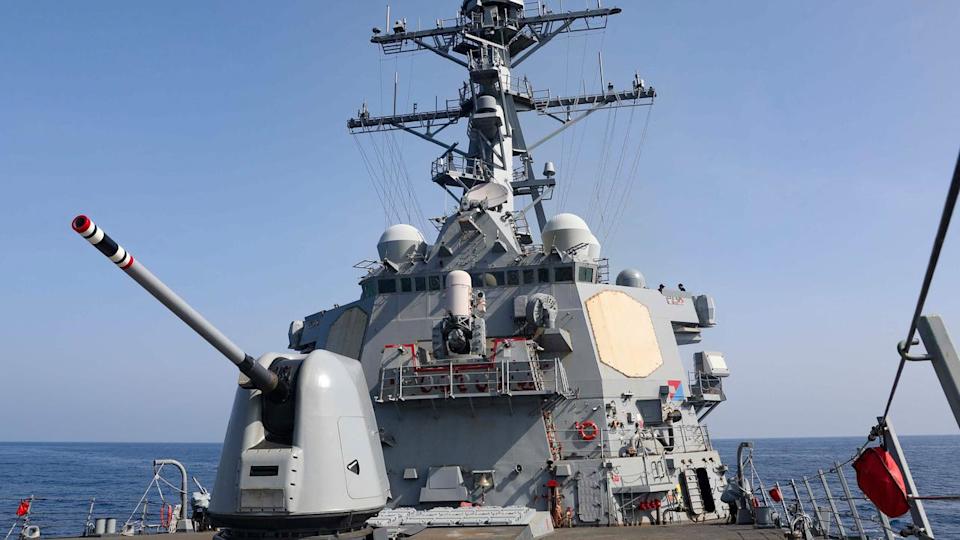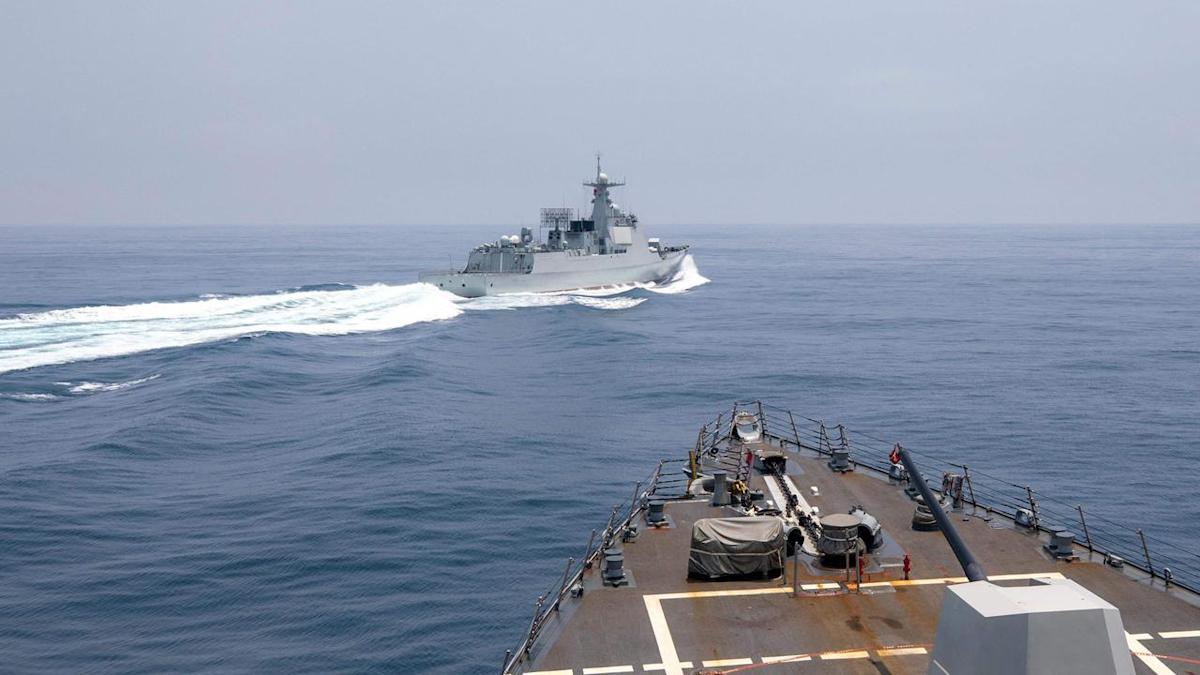Beijing have tracked two Canadian and Australian vessels and accused both countries of sending out wrong signals and creating “heightened security risks” in the highly contested Taiwan Strait.
The water way, which lies between China and Taiwan, is crucial for global trade and essential for the supply of advanced semiconductors, 90 per cent of which are produced by the tiny island nation.
On Saturday, the Chinese military accused Australia and Canada of making “provocative actions” while Canadian frigate HMCS Ville de Québec and Australian destroyer HMAS Brisbane were travelling across the strip.
PLA Eastern Theatre Command spokesman Army Senior Colonel Shi Yi slammed the actions and warned PLA troops were “on high alert at all times and are ready to resolutely safeguard China’s national sovereignty, security, and regional peace and stability”.
“The Chinese PLA Eastern Theatre Command organised its naval and air forces to track and monitor the transit of the two vessels, effectively responding and handling the situation,” he said.


China accused Australian and Canadian naval forces of provocation in the Taiwan Strait. Picture: Greg Johnson/ US Navy/ AFP
“The actions of Canada and Australia have sent out wrong signals and heightened security risks.”
The HMAS Brisbane most recently participated in freedom of navigation exercises with Canada, the Philippines and the United States in Philippines’ Exclusive Economic Zone, which the Department of Defence confirmed concluded on Wednesday.
In recent months the US has upped its military vigilance of Taiwan after US Secretary of Defence Pete Hegseth warned there was an “imminent threat” to China invading Taiwan.
As a result, the US has demanded allied countries increase defence spending, ordering Australia to hike up investment to 3.5 per cent.
Australia has largely ignored those calls, with current spend at about 2 per cent, and forecasted to reach 2.3 per cent by 2033-34.
The Defence Department and Defence Minister Richard Marles have been contacted for comment.
